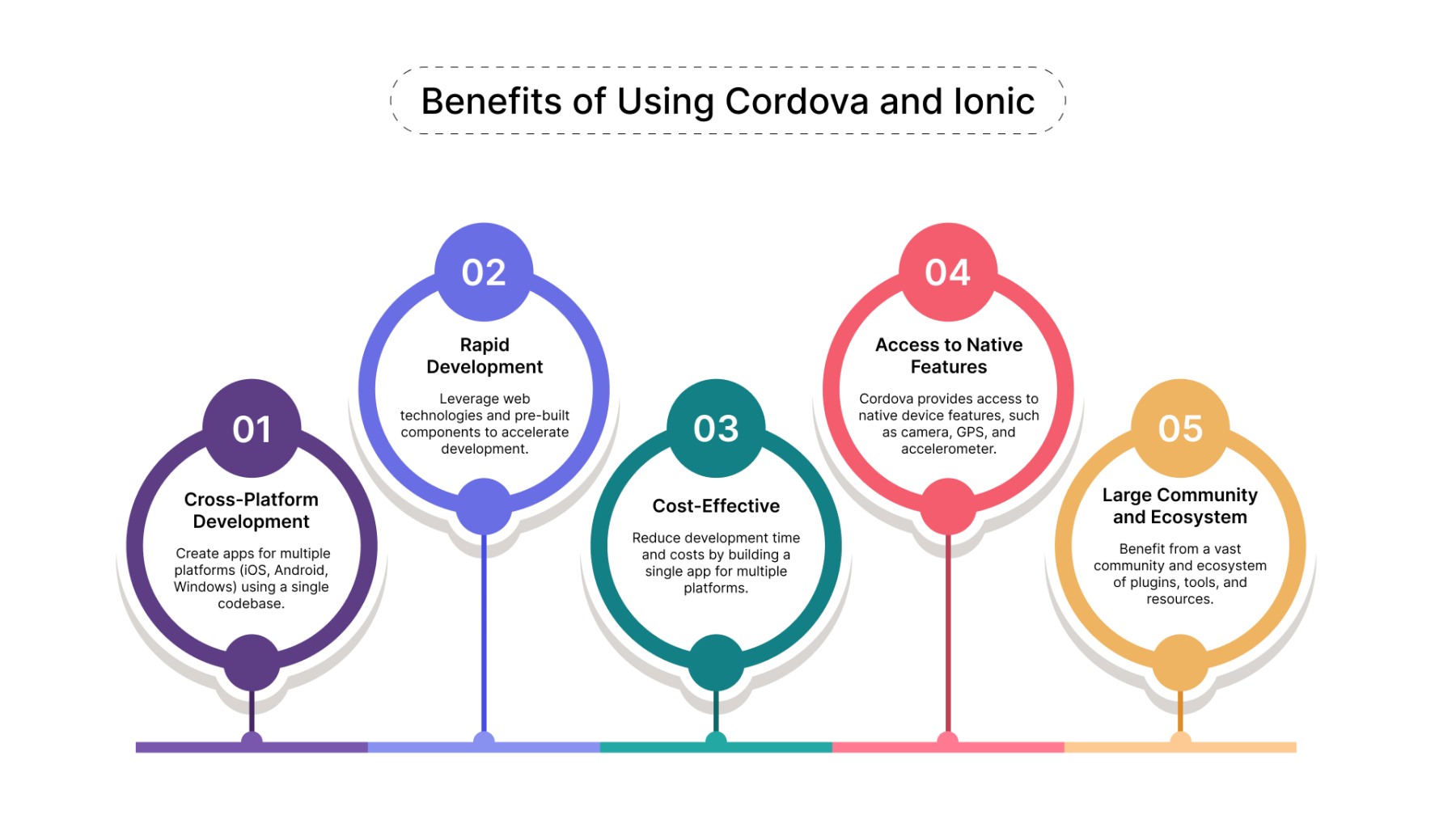Hybrid mobile app development has gained significant popularity in recent years due to its ability to create cross-platform applications with a single codebase. Cordova and Ionic, two popular frameworks, have emerged as leading tools for building hybrid mobile apps. This blog explores the benefits, features, and integration process of Cordova and Ionic, providing a comprehensive overview of their capabilities.
Understanding Cordova and Ionic
Cordova: A framework that allows developers to build mobile apps using web technologies (HTML, CSS, and JavaScript) and package them for native platforms (iOS, Android, Windows). Cordova provides a bridge between web technologies and native device features.
Ionic: A UI framework built on top of Cordova, offering pre-built components, themes, and tools for creating visually appealing and interactive mobile apps. Ionic simplifies the development process and provides a consistent user experience across platforms.
Benefits of Using Cordova and Ionic
-
Cross-Platform Development: Create apps for multiple platforms (iOS, Android, Windows) using a single codebase.
-
Rapid Development: Leverage web technologies and pre-built components to accelerate development.
-
Cost-Effective: Reduce development time and costs by building a single app for multiple platforms.
-
Access to Native Features: Cordova provides access to native device features, such as camera, GPS, and accelerometer.
-
Large Community and Ecosystem: Benefit from a vast community and ecosystem of plugins, tools, and resources.
Integration Process
-
Project Setup: Create a new Cordova project and install Ionic.
-
Develop UI: Use Ionic's components and framework to build the app's user interface.
-
Integrate Plugins: Add Cordova plugins to access native device features.
-
Build and Deploy: Build the app for the desired platforms and deploy it to app stores.
Key Features and Capabilities
-
UI Components: Ionic provides a rich set of pre-built UI components for creating visually appealing interfaces.
-
Theming: Customize the app's appearance with themes and styles.
-
Performance Optimization: Ionic offers tools and techniques for optimizing app performance.
-
Offline Functionality: Enable offline capabilities using Cordova's storage APIs.
-
Integration with Third-Party Services: Integrate with popular services like Firebase, Google Maps, and payment gateways.
Best Practices for Cordova and Ionic Development
-
Code Quality: Follow best practices for writing clean and maintainable code.
-
Testing: Thoroughly test your app on different devices and platforms.
-
Performance Optimization: Optimize your app for performance using tools and techniques.
-
Security: Implement security measures to protect user data and prevent vulnerabilities.
-
Stay Updated: Keep up with the latest versions of Cordova and Ionic to benefit from new features and improvements.
Challenges and Considerations
-
Performance: Hybrid apps might not always match the performance of native apps, especially for computationally intensive tasks.
-
Compatibility: Ensure compatibility across different platforms and devices.
-
Plugin Management: Manage and update Cordova plugins effectively.
-
Debugging: Troubleshoot issues effectively using Cordova's debugging tools.
Latest Trends and Technologies
-
Progressive Web Apps (PWAs): Combine the best of web and native apps, offering offline functionality and installability.
-
Capacitor: A newer framework from Ionic that offers improved performance and native integration.
-
Flutter: A cross-platform framework from Google that also supports hybrid app development.
Conclusion
Cordova and Ionic provide a powerful platform for building cross-platform mobile apps. By understanding their features, benefits, and challenges, developers can effectively leverage these tools to create high-quality and engaging applications. As the mobile app landscape continues to evolve, Cordova and Ionic will remain valuable options for developers seeking to build cross-platform apps efficiently.



